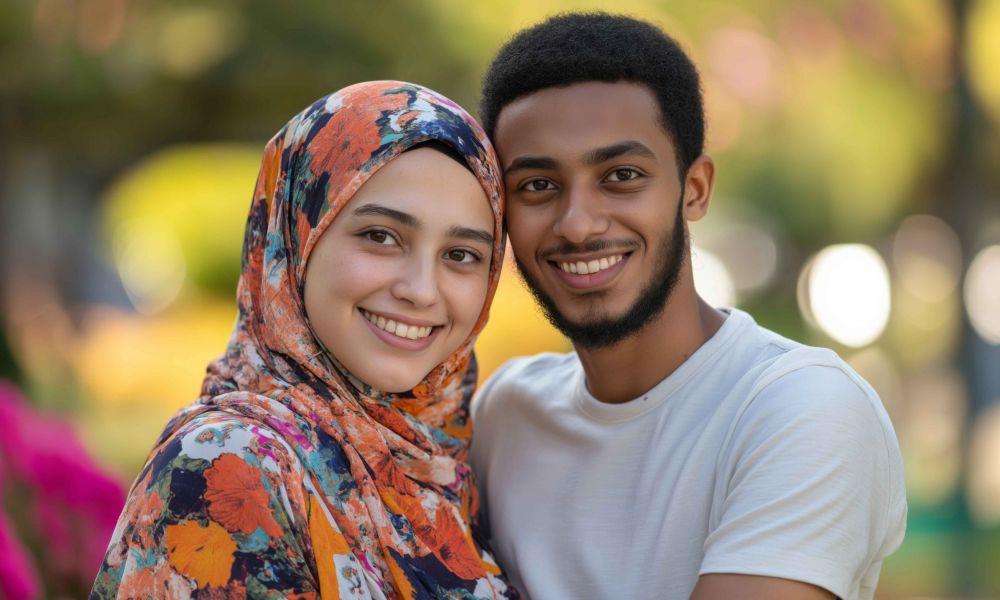
Sharia Marriage and the Role of the Wali: Is the Father Always Required?
Table of Contents ▼
When discussing Sharia marriage, one of the most frequently raised questions is whether the bride’s father must always be present for the marriage to be considered valid. This matter sparks debate across Islamic jurisprudence and varies depending on legal systems worldwide.
In this comprehensive article, we’ll explore the opinions of major Islamic schools, compare practices in different countries, and clarify when an Islamic nikah absolutely requires the wali’s presence. We’ll also explain why this topic matters for Muslims living in both Muslim-majority and non-Muslim countries.
Table of Contents
What is a Sharia Marriage and Who Is a Wali?
A Sharia marriage is a religious marriage conducted under Islamic law, where the nikah contract must meet certain spiritual and legal criteria. A key figure in this process is the wali—the bride’s guardian—traditionally her father, but potentially another male relative, imam, or court-appointed representative. The wali’s main responsibility is to protect the bride’s interests, ensure her consent, and negotiate terms on her behalf if needed.
But does every Sharia marriage require a wali? That’s where opinions diverge. The answer depends on whether we’re considering religious doctrine, Islamic scholarly interpretations, or local legal mandates. Let’s dive into the views of Islamic scholars first.
Scholarly Perspectives: How Islamic Jurisprudence Frames the Wali in Sharia Marriage
Islamic scholars from different schools of thought (madhhabs) interpret the necessity of the wali in a Sharia marriage in unique ways. Here is a detailed breakdown:
1. Hanafi School
- Core View: An adult, sane Muslim woman can enter into a Sharia marriage independently, provided her partner is appropriate (kafa’ah) and both parties give genuine consent.
- Reasoning: Imam Abu Hanifa emphasized a mature woman’s capacity to choose, assuming there is no injustice or incompatibility.
- Cultural Reality: Even though a wali is not strictly required in Hanafi jurisprudence, in many communities (in South Asia, Turkey, and the West) weddings still involve a wali out of tradition.
2. Maliki School
- Core View: A wali is essential for a valid Sharia marriage, regardless of the bride’s psychological or legal status.
- Reasoning: Imam Malik maintained that guardianship is a cornerstone of marriage legitimacy in Islamic law.
- Where It’s Practiced: This view dominates in North and West Africa and in some conservative emirates.
3. Shafi’i School
- Core View: Any Sharia marriage without a wali is considered invalid and unrecognized.
- Reasoning: Imam al-Shafi’i applied hadith-based interpretations strictly, requiring the guardian’s active consent and presence.
- In Practice: Countries like Indonesia, Malaysia, and East African regions follow this rule without exception.
4. Hanbali School
- Core View: Guardian approval is non-negotiable; without it, the Sharia marriage has no standing.
- Reasoning: Imam Ahmad ibn Hanbal viewed the wali’s participation as fundamental to honoring Islamic marriage principles.
- Wide Application: The Hanbali approach is common in Saudi Arabia and conservative parts of the UAE.
5. Ja’fari (Shia) School
- Core View: The presence of a wali depends on the marital status of the bride:
- Virgin: She requires her father’s or grandfather’s approval.
- Divorced/Widowed: She may marry without a wali.
- Virgin: She requires her father’s or grandfather’s approval.
- Reasoning: Imam Ja’far al-Sadiq balanced protective norms for unmarried women with autonomy for those previously married.
- Applicability: This view applies in Iran, Iraq, and among Shia communities everywhere.

Legal Systems & Sharia Marriage: Country-by-Country Comparison
Religious rulings are one thing; legal enforcement is another. Even in Muslim-majority nations, the requirement of the wali for a Sharia marriage may be mandated by law or left as religious guidance.
United Arab Emirates (UAE)
In UAE law, Sharia principles guide Muslim marital contracts, but individual emirates vary.
- Dubai
- A wali must be present for a valid Sharia marriage.
- If the father is not available, the court can appoint a legal guardian, subject to judicial approval.
- Even widows or divorcees may need a wali unless a judge determines otherwise.
- A wali must be present for a valid Sharia marriage.
- Sharjah
- Sharjah applies a more conservative policy: no Sharia marriage can proceed without a wali, regardless of the bride’s personal circumstances.
- Sharjah applies a more conservative policy: no Sharia marriage can proceed without a wali, regardless of the bride’s personal circumstances.
- Abu Dhabi
- Offers a dual system:
- Muslim residents: governed under Sharia marriage rules—wali required.
- Non-Muslim residents may use a civil marriage system in family courts, where the wali is not required.
- Muslim residents: governed under Sharia marriage rules—wali required.
- Offers a dual system:
Why This Matters to Muslims Today
1. Legal Validity
Living in a country like the UK or UAE means navigating both Sharia marriage requirements and state regulations. Couples must ensure they meet both to avoid disputes or nullification.
2. Personal Rights & Protection
One aim of requiring a wali is to safeguard the bride’s rights and well-being. In some legal systems, if a wali’s presence is required under Sharia marriage law but omitted, the marriage may be invalidated.
3. Cultural Expectations
Even when the Sharia marriage does not legally need a wali (e.g., under Hanafi jurisprudence), cultural norms in many Muslim societies prefer the father’s involvement as a sign of respect and family unity.
4. Interfaith & International Unions
Intercultural or interfaith weddings often require careful coordination between the religious expectations of a Sharia marriage and the legal standards of the country of residence.
How to Proceed: Practical Advice for Couples
If you are planning a Sharia marriage, here are the steps you should take:
- Know Your School of Thought
- Determine if your community follows Hanafi, Maliki, Shafi’i, Hanbali, or Ja’fari interpretations.
- Each school has distinct rulings on the necessity of the wali.
- Determine if your community follows Hanafi, Maliki, Shafi’i, Hanbali, or Ja’fari interpretations.
- Check Local Law
- If you’re in a Muslim-majority country, verify the emirate or national stance on Sharia marriage requirements.
- If in a non-Muslim country, distinguish between civil and religious marriage systems.
- If you’re in a Muslim-majority country, verify the emirate or national stance on Sharia marriage requirements.
- Speak with Religious Authorities
- Talk to an imam, Islamic law council, or qualified scholar who understands both religious principles and local law regarding Sharia marriage.
- Talk to an imam, Islamic law council, or qualified scholar who understands both religious principles and local law regarding Sharia marriage.
- Plan the Ceremony
- If a wali is required, confirm his presence or make acceptable arrangements if he is unlikely to attend.
- For civil marriage, ensure all legal paperwork and requirements are fulfilled.
- If a wali is required, confirm his presence or make acceptable arrangements if he is unlikely to attend.
Final Takeaway
When planning a Sharia marriage, it is essential to understand:
- What your religious tradition (Hanafi, Shafi’i, etc.) requires.
- Whether local laws mandate a wali in the marriage contract.
- How the presence or absence of the father or guardian will affect religious validation and legal standing.
A Sharia marriage aims to unite couples under God’s guidance while safeguarding the rights of both partners. Whether the wali’s presence is required or not, ensuring clarity in religious and legal obligations takes care, intention, and understanding. By engaging with a qualified religious authority and legal expert, couples can honor their faith, family, and country in equal measure.


